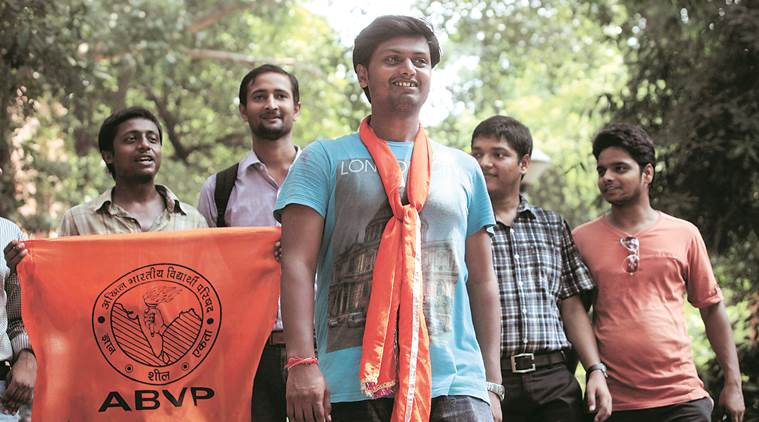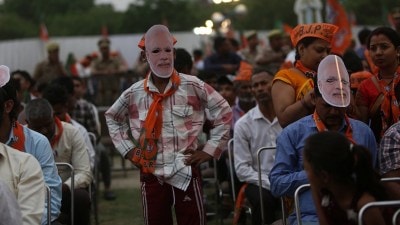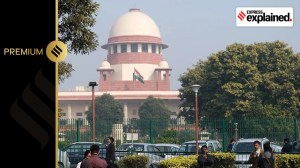- India
- International
At JNU council meeting, lone ABVP office-bearer brings up Art 370, civil code, Naxalism
Resolutions were also proposed in support of “cultural integration of North East India with rest of India.
 JNUSU Joint Secretary Saurabh Kumar Sharma
JNUSU Joint Secretary Saurabh Kumar Sharma
It has been 14 years since the right-wing Akhil Bharatiya Vidyarthi Parishad (ABVP) won a post in the central panel of the Jawaharlal Nehru University Students’ Union (JNUSU) elections. It has also been 14 years since the campus saw certain resolutions being put forward by a Union member in the first council meeting.
The Council comprises the four central office-bearers and 31 councillors from the various schools on campus.
Abolition of Article 370, implementation of the Uniform Civil Code and creation of a ‘Union Territory of Kashmiri Hindus (open to everyone else)’ in the Valley: these were some of the resolutions put forward by JNUSU Joint Secretary Saurabh Kumar Sharma in the meeting held on Sunday.
[related-post]
Some of the other resolutions proposed by Sharma included “supporting diplomatic relations with Israel and other Arabic nations”, condemning “anti-national activities in JNU such as Afzal Guru Shahadat Diwas and paying tribute to convicted terrorists like Yakub Memon”.
The resolutions also condemned “hurting religious sentiments in the name of cultural interpretation and holding programmes that defame and derogate gods and goddesses”.
“The day Yakub Memon was hanged, some people were paying tributes to him…while we celebrate Durga Puja on campus, some groups worship Mahishasura. This is not part of Indian culture,” said Sharma.

The Council, which held a vote, rejected all resolutions put forward by him, except one. The resolution which was passed stated, “JNUSU condemns ethnic cleansing and cultural annihilation of Tibetans by Communist China”.
“When I proposed this resolution, 11 of our (ABVP) councillors and I voted in favour. The other members from the Left abstained. No one voted against the resolution, that is why it was passed,” said Sharma.
The first Council Meeting convened after the JNUSU results sets the agenda of the union. In addition to electing the convenors of every school, the day-to-day agenda is decided and resolutions are passed to decide the overall stand of the union on larger issues.
While passing the resolution, the JNUSU president (chair) cannot vote unless there are an equal number of votes opposing and favouring a particular resolution. The president, however, has the power to reject resolutions before they are put to vote.
Sharma’s resolutions also sought condemnation of “ideological imposition in academics in JNU, suppression of democratic rights and imposition of homogenous norms by Communist North Korea, ethnic genocide of Yazidis by Islamic State and massacre of Shias, Baloch, Hazras etc from Pakistan to Libya, sexual exploitation of women and children in Naxal camps and recruitment of child soldiers by Naxalites”.
Resolutions were also proposed in support of “cultural integration of North East India with rest of India using exchange programmes and teaching of all ideologies/perspectives in humanities and social sciences in JNU”.
Apr 25: Latest News
- 01
- 02
- 03
- 04
- 05







































